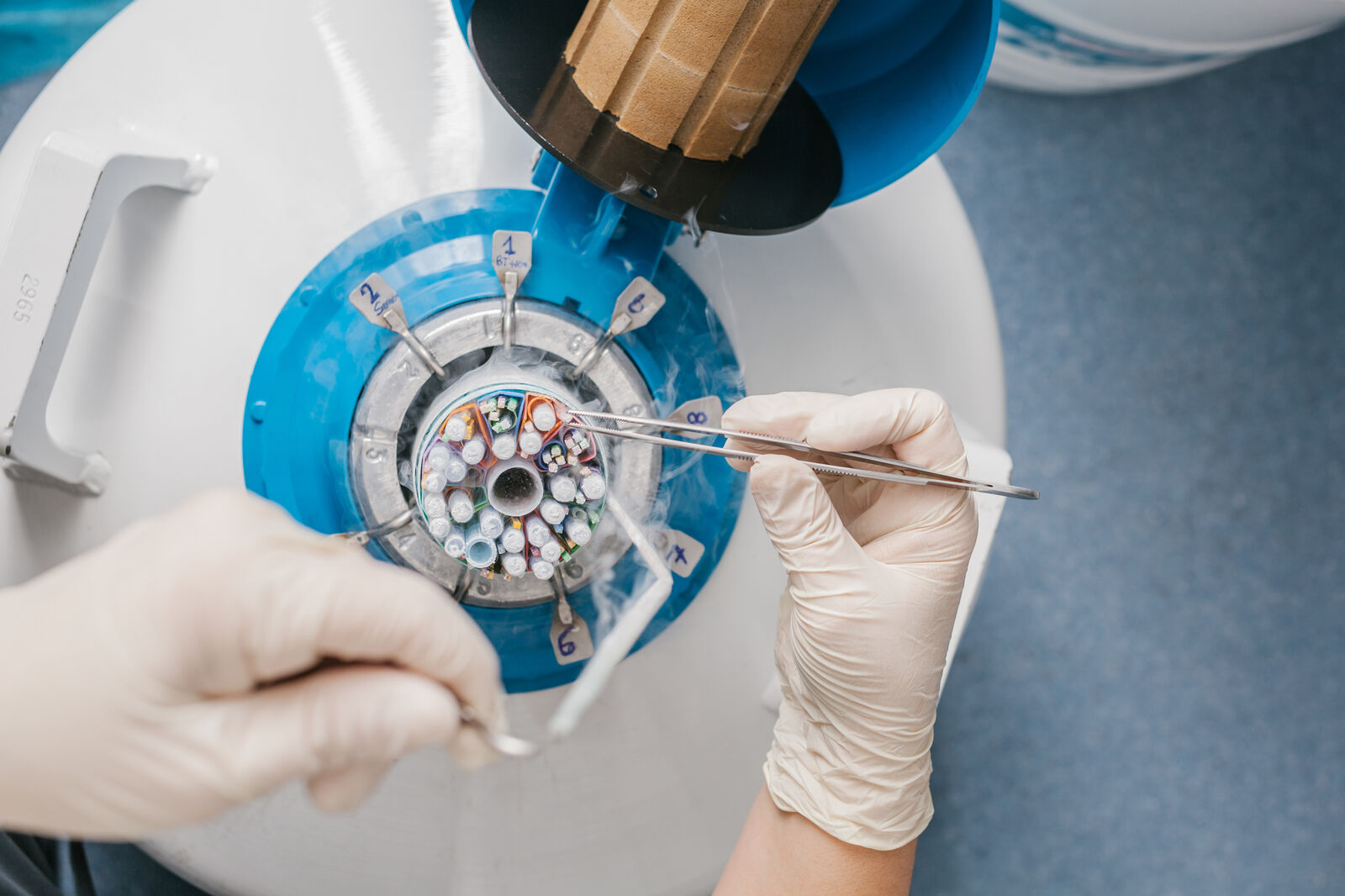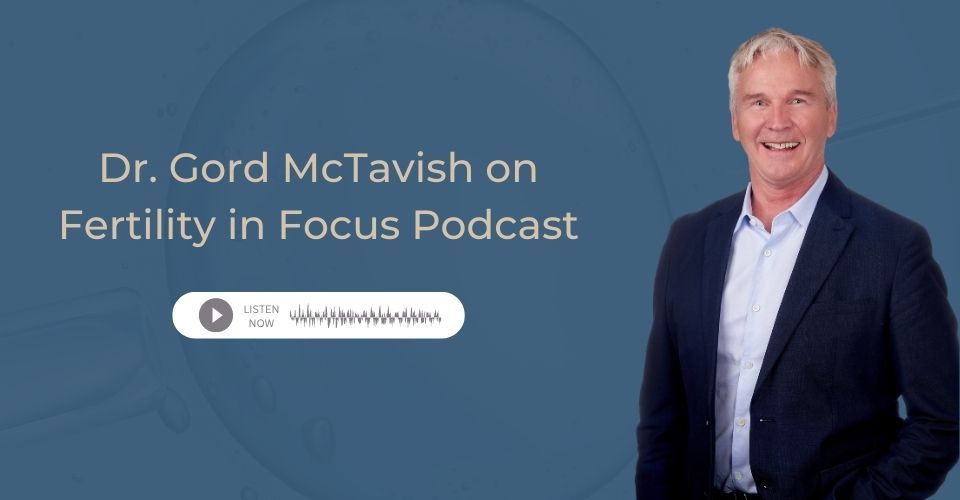
Treatments
As one of Canada's leading fertility centers with some of the most successful rates of pregnancy, Heartland Fertility offers a comprehensive range of fertility treatments. They can range from simple interventions to more advanced assisted reproductive technologies. We'll create a treatment plan based on your family goals and assessment results.
Select a Treatment
Ovulation Induction (Superovulation)
Ovulation induction increases the chance of conception through the use of oral or injectable fertility medications to stimulate the ovaries to produce one or more mature eggs in a female who normally does not ovulate.
Ovulation induction may be right for you if you:
Have ovulation problems that have not responded to simpler medications (such as clomiphene citrate).
Have unexplained infertility and wish to try ovulation induction to increase the number of eggs produced in each cycle.
Intrauterine Insemination (IUI)
IUI, or artificial insemination, is a less invasive, common fertility treatment that involves inserting washed sperm into the uterus at the time of ovulation to improve the chances of pregnancy.
Reasons for IUI Fertility Treatment Using a Partner’s Sperm
Mild male infertility (slight variation in sperm count, mobility or shape)
Unexplained infertility
Cervical factor infertility
Mild endometriosis
Repeated unsuccessful cycles of ovarian stimulation and timed intercourse
The IUI Fertility Treatment Process:
Stimulation Phase - We administer fertility drugs to stimulate the growth of two or three eggs to maturity, stimulating follicle growth and causing ovulation to take place.
Monitoring Phase - We monitor the growth of follicles, control the drug dose, and reduce the risk of multiple births.
Ovulation Phase - We inject the hormone hCG (human chorionic gonadotropin) to induce ovulation when at least two or three follicles are mature.
Insemination Phase - On the morning of ovulation, a washed sperm sample is provided and injected later the same day with a very fine catheter inserted through the cervix, high into the uterus of the woman.
Potential Pregnancy - Two weeks after the procedure, you will learn if you are pregnant.
The IUI procedure is fairly painless and the patient can resume their daily activities within minutes.
Reasons for IUI Fertility Treatment Using a Donor’s Sperm
Single females
Same-sex females
Severe male infertility
History of certain genetic disorders
Donor sperm comes from accredited sperm banks that meet strict Health Canada standards. If this is a treatment option for you, the Heartland team will provide you with the necessary information and instruction to move forward.
A session with a trained counselor who specializes in fertility issues is mandatory when using a donor for the artificial insemination process. This session will provide you with the opportunity to discuss common issues concerning this type of insemination, and to help you work through any concerns you may have prior to undergoing the procedure. Learn more about donor options here:
In Vitro Fertilization (IVF)
In Vitro Fertilization (IVF) is a fertility procedure where an egg and sperm are brought together outside the female’s body, and grown in the lab for several days (usually 2-5), then placed into the uterus, or frozen for later implantation. Your Heartland physician, an IVF specialist, will help you determine if IVF is the best treatment option for your specific situation.
What to Expect During IVF
The duration of IVF treatment, from when you start preparation until you may learn you are pregnant, is 6-8 weeks. A typical IVF cycle is divided into three parts: preparation, stimulation, and retrieval and transfer.
Equipped with extensive IVF expertise, our team at Heartland Fertility will be there to guide and support you every step of the way.
What you can expect during IVF treatment
The IVF Fertility Treatment Process (5 Stages of IVF):
First Stage: Stimulation & Monitoring
This phase will last approximately 2-5 weeks. Your IVF specialist will evaluate the development of your eggs so that they can be retrieved at full maturity. You may need to take medication during this period if your cycle requires stimulation.
Second Stage: Egg Retrieval
Mature oocytes are retrieved vaginally by means of a suction system and are then given to the embryologist who will find the number of eggs in each oocyte retrieved.
Third Stage: In Vitro Fertilization
Traditional IVF | This technique consists of putting the harvested egg in the presence of sperm to stimulate natural fertilization, all in a controlled environment.
IVF with ICSI | An IVF technique in which the sperm is meticulously selected by the embryologist and inserted with a very fine needle directly into the egg. This is done under a microscope by one of our embryologists.
Fourth Stage: Embryo Maturation
It is usually during this time that your physician will be able to determine whether you will have a fresh (after 5 or 6 days) or frozen (after 1 or 2 menstrual cycles) embryo transfer.
Embryos can also be frozen at this stage for future use.
Fifth Stage: Embryo Transfer
This procedure is performed under ultrasound and involves implanting the embryo into your uterus using a catheter.
What’s Next?
Two weeks after the embryo transfer, you will learn if you are pregnant. Once your pregnancy has been confirmed, the Heartland team will closely monitor the pregnancy with blood tests for your beta HCG levels. An ultrasound will also be performed to ensure pregnancy is in the correct location in the uterus and is developing normally.
Accompanying Procedures to IVF
Microsurgical Epididymal Sperm Aspiration (MESA)
Fluid containing sperm is collected from within the testicle to use and freeze for IVF.
Percutaneous Epididymal Sperm Aspiration (PESA)
Sperm is collected using a small needle through the skin of the scrotum to use for IVF. This technique is easier and faster than MESA.
Testicular Sperm Aspiration (TESA)
With TESA, a needle is used to take a small amount of tissue (called a biopsy) from the testicle. Sperm retrieved using this technique must be injected into the egg by ICSI (intracytoplasmic sperm injection) techniques.
Microsurgical Testicular Sperm Extraction (mTESE)
The testicle is opened in the operating room under general anesthesia to look for sperm.
IUI 101: Everything You Need To Know With Dr. Gord McTavish
Dr. Gord McTavish talks to Fertility Matters Canada about the basics of IUI, why it's used as a treatment option for infertility, what its purpose is, and more.

As a complement to fertility treatments, our physicians might recommend some additional services based on innovative technologies with leading evidence to increase chances of pregnancy.
Ready to get
started?
We make it easy to begin. Whether you're interested in IUI, IVF, or fertility testing, our compassionate team is here with expert care and guidance, so you can take your next step with confidence.